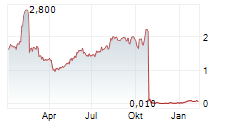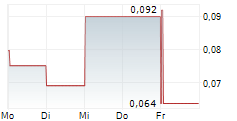Guard Therapeutics (publ) today announced favorable efficacy results from additional analyses of the Phase 2a AKITA study with the investigational drug candidate RMC-035. The previously reported primary results demonstrated a robust improvement in kidney function following open-heart surgery. The new analyses strengthen these findings and show that RMC-035 provides kidney-protective benefits both in patients with and without acute kidney injury, and additionally reduces key biomarkers of kidney damage, including albuminuria, further supporting its kidney-protective potential. Selected results will be presented at the leading U.S. scientific conference ASN Kidney Week 2025.
"These additional analyses from the AKITA study further strengthen the evidence supporting RMC-035's ability to protect kidney function in high-risk patients undergoing open-heart surgery," said Tobias Agervald, CEO of Guard Therapeutics. "We are encouraged by these findings and look forward to the top-line results of the Phase 2b POINTER study, anticipated in early November."
The new analyses address three aspects: first, whether the kidney-protective effect of RMC-035 at Day 90 is influenced by patients meeting the criteria for acute kidney injury (AKI) within three days of the surgical procedure; second, how RMC-035 affects the amount of albumin in urine, an important prognostic marker of kidney function; and third, what effect RMC-035 has on levels of important biomarkers of cellular injury in the kidney after surgery. In all cases, the results were favorable for RMC-035 compared with placebo.
The main results are summarized below:
- Consistent with the primary analysis demonstrating a statistically significant improvement in kidney function measured by estimated glomerular filtration rate (eGFR) with RMC-035 compared with placebo, the new analyses confirm favorable effects both in patients with and without signs of acute kidney injury (AKI) following surgery. At Day 90, the net difference in eGFR between RMC-035 and placebo was 5.5 mL/min/1.73 m² (90% confidence interval [CI] 1.7-9.4; P = 0.019) among those without AKI, and 4.9 mL/min/1.73 m² (90% CI 0.8-9.1; P = 0.056) among patients with AKI. This demonstrates the kidney-protective potential of RMC-035 irrespective of the acute injury phase.
- In patients with chronic kidney disease (baseline eGFR <60 mL/min/1.73 m²), treatment with RMC-035 significantly reduced albuminuria, measured as the urinary albumin-to-creatinine ratio (UACR), compared with placebo at Day 90. This is important since high UACR levels predict faster progression of chronic kidney disease and a greater risk of end-stage renal disease, while reductions in UACR are associated with better long-term outcomes. In this pre-specified subgroup, UACR decreased with RMC-035 (-34.1% [90% CI -58.8 to +5.5]) whereas it increased with placebo (+42.5% [90% CI -3.5 to +110.2]; geometric mean ratio [GMR] 0.42 [90% CI 0.24-0.76]; P = 0.020).
- Biomarker assessments reflecting post-operative tubular cell injury further supported a beneficial effect of RMC-035. At 24 hours, the increase in Kidney Injury Molecule-1 (KIM-1) was significantly attenuated in the RMC-035 group compared with placebo (GMR 0.66; 95% CI 0.50-0.88; P = 0.004). This effect was consistent across eGFR subgroups: baseline eGFR <60 mL/min/1.73 m² (GMR 0.60; 95% CI 0.38-0.96; P = 0.038) and baseline eGFR =60 mL/min/1.73 m² (GMR 0.70; 95% CI 0.49-0.99; P = 0.047). Addtionally, the absence of differences in post-operative Neutrophil Gelatinase-Associated Lipocalin (NGAL) levels between treatment groups confirms that RMC-035 does not induce tubular cell harm, even at higher exposures.
Taken together, the new results reinforce the primary analyses of the AKITA study and provide additional insights into the underlying protective mechanisms of RMC-035.
As previously communicated, the new analyses will be presented in part as two separate posters at ASN Kidney Week, November 5-9, 2025, in Houston, TX, USA, as follows:
- Session Title: AKI: Epidemiology and Clinical Trials [PO0102-2]
- Session Date/Time: November 7, 2025, 10:00 AM - 12:00 PM local time
- Poster Board #: FR-PO0093 - Kidney Function Following Open-Chest Cardiac Surgery: Post Hoc Analysis of the AKITA Study
- Poster Board #: FR-PO0094 - Efficacy of RMC-035 in Reducing MAKE90 in Patients With and Without AKI After Cardiac Surgery: Post Hoc Analysis of the AKITA Study
For more information, please visit the ASN website: American Society of Nephrology | Kidney Week - Meeting Overview (2025)
For further information, please contact:
Tobias Agervald, CEO
Telephone: +46 8 670 65 51
E-mail: info@guardtherapeutics.com
About Guard Therapeutics
Guard Therapeutics is a Swedish clinical-stage biotechnology company that identifies and develops new therapies for diseases with a large unmet medical need, focusing on different forms of kidney disease. The company's candidate drugs are based on the endogenous protein alpha-1-microglobulin. Guard Therapeutics is listed on Nasdaq First North Growth Market Stockholm (ticker: GUARD).
Certified Adviser is Svensk Kapitalmarknadsgranskning AB, www.skmg.se.
About RMC-035
The company's lead candidate RMC-035 represents a completely new class of drugs (first-in-class) and consists of a recombinant and modified variant of the endogenous protein alpha-1-microglobulin. The investigational drug has the ability to protect cells and their mitochondria from damage caused by oxygen deprivation and elevated levels of the oxygen-binding and toxic protein heme. Favorable treatment effects of RMC-035 have been observed in several preclinical disease models. RMC-035 has a natural affinity for the kidneys and is primarily being developed as an intravenous kidney protective treatment for patients at high risk of developing acute kidney injury (AKI).
RMC-035 has obtained an Investigational New Drug (IND) clearance from the U.S. Food and Drug Administration (FDA) for administration to patients in clinical studies. Additionally, RMC-035 has been granted Fast Track Designation by the FDA to reduce the risk of irreversible loss of kidney function, the need for dialysis treatment, or death after open-heart surgery in patients at elevated risk of AKI.
Results from the Phase 2 AKITA study, which enrolled 177 patients, demonstrated a statistically significant and clinically relevant beneficial effect of RMC-035 compared with placebo on long-term kidney outcomes in this patient population. Based on these results, a subsequent Phase 2b study, POINTER, was initiated.
In addition to its evaluation in open-heart surgery, RMC-035 has also been assessed in a Phase 1b clinical study in patients undergoing kidney transplantation.
About the POINTER study
The POINTER study is a randomized, double-blind, placebo-controlled Phase 2b trial of RMC-035 designed to evaluate its efficacy and safety as a kidney-protective treatment in open-heart surgery, and to determine the optimal dosing regimen and target patient population ahead of a registrational Phase 3 study.
The study includes a total of 170 patients randomized to two RMC-035 dose groups (60 mg and 30 mg) and a control group (placebo) in a 2:2:3 allocation. The primary efficacy endpoint is the change in renal function (eGFR) from baseline to Day 90 after surgery. Major Adverse Kidney Events (MAKE) at Day 90 after surgery is a secondary efficacy endpoint, defined as death, dialysis, or =25% loss of eGFR compared with baseline.
Data from the two RMC-035 dose groups will be pooled and compared with placebo in the primary efficacy analyses. Baseline kidney function was used as a stratification factor to ensure that patients with and without chronic kidney disease were evenly distributed across all treatment arms.
Patient recruitment for the study was completed during the second quarter of 2025, and the overall study results are expected to be available in November.
About the indication - kidney injury in open-heart surgery
The company's lead candidate RMC-035 aims to counteract kidney injury that occurs in connection with open-heart surgery and ultimately to reduce the risk of an irreversible loss of kidney function and future end-stage renal disease that requires dialysis treatment or a kidney transplant.
Open-heart surgery using a heart-lung machine typically involves coronary artery bypass grafting (CABG), with or without concurrent heart valve or aortic root surgery. This procedure often leads to significant kidney damage, primarily due to ischemia-reperfusion injury, where blood flow and oxygen supply to the kidneys are reduced.
Another contributing factor is hemolysis, the breakdown of red blood cells, which releases harmful byproducts of hemoglobin that can damage the kidneys. Hemolysis occurs during extracorporeal blood circulation through the heart-lung machine, as well as following blood transfusions, which are commonly administered during the procedure. Additionally, the lack of oxygen and the effects of hemolysis often trigger a secondary inflammatory response, exacerbating kidney injury and increasing the risk of scarring and permanent loss of kidney function.
This information is information that Guard Therapeutics is obliged to make public pursuant to the EU Market Abuse Regulation. The information was submitted for publication, through the agency of the contact persons set out above, at 2025-10-05 14:15 CEST.


